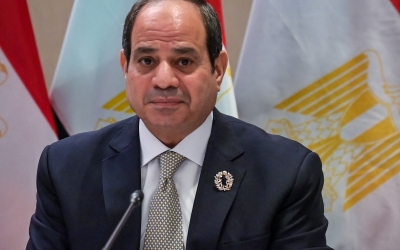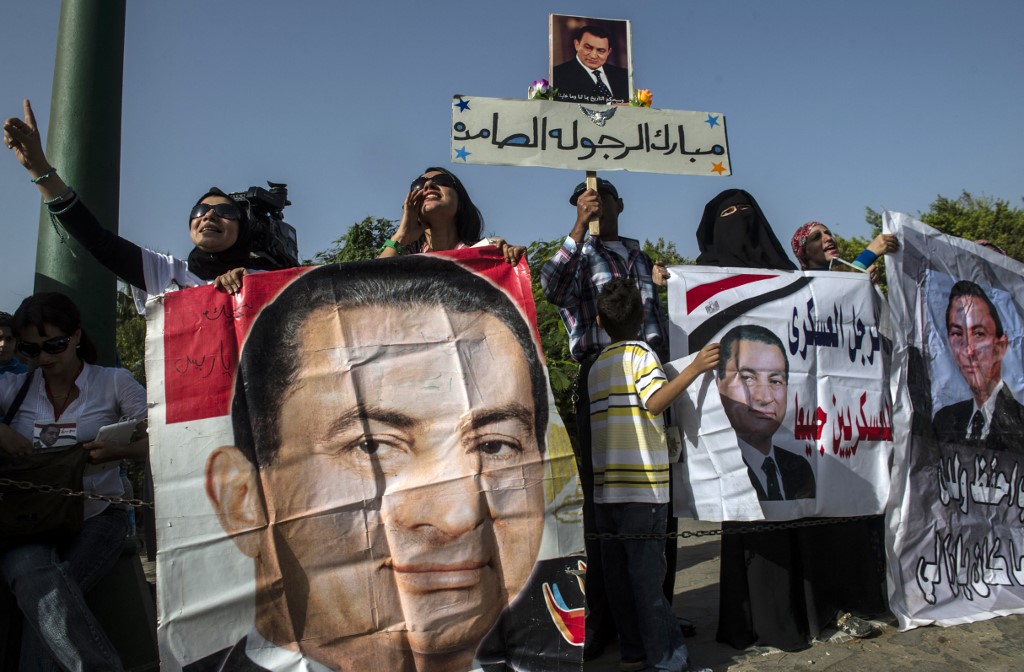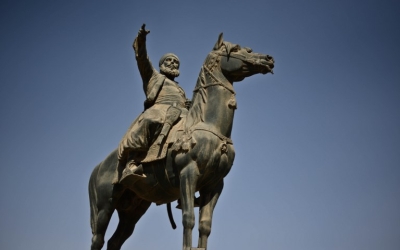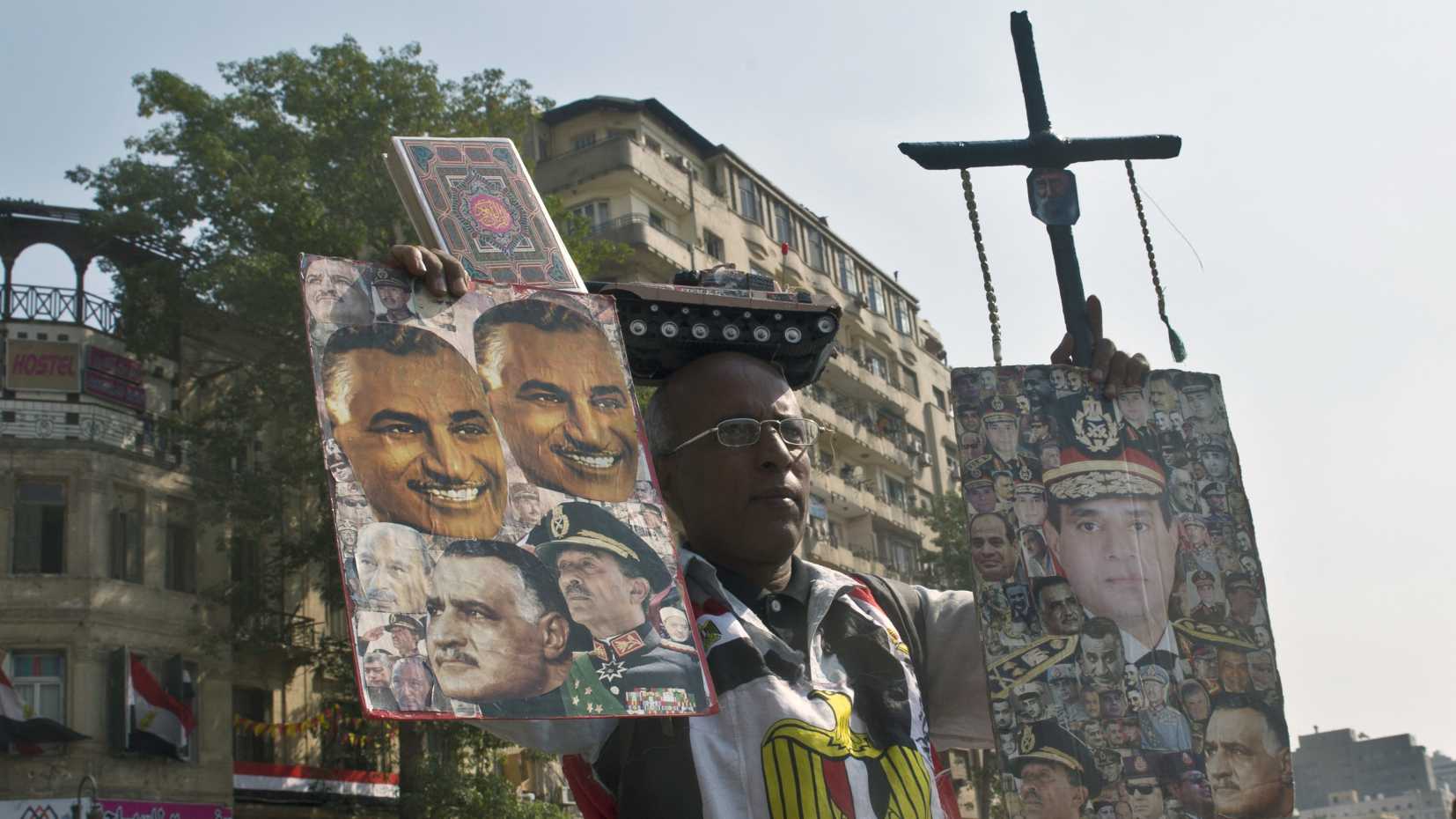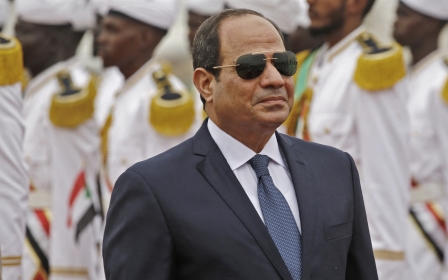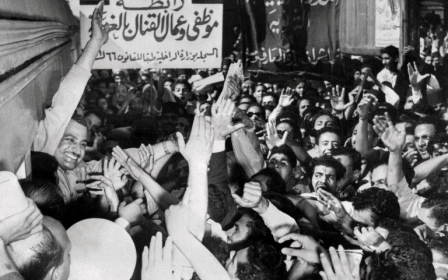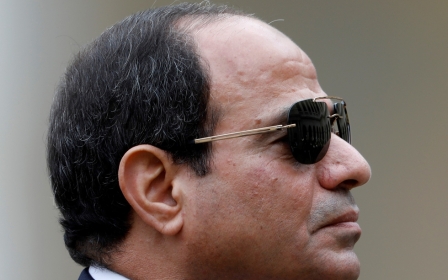Egypt: The secret of seven decades of military rule
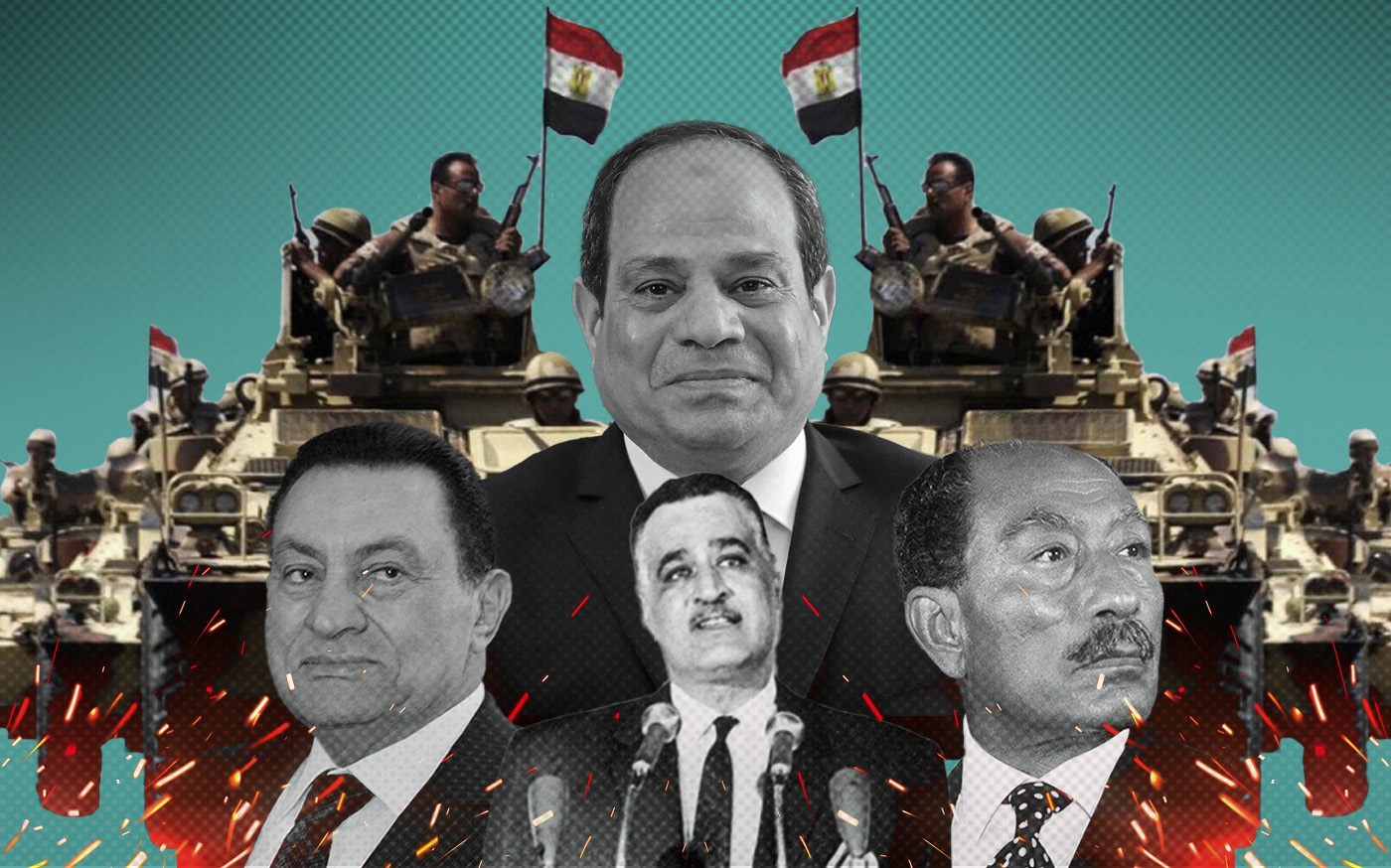
This July will mark 70 years of military rule in Egypt. Other than the one-year interregnum of 2012-13 under President Mohamed Morsi, when the military hovered in the wings plotting his overthrow, officers have exercised unbroken, absolute power, thus setting a world record for the duration of military dictatorship.
This political longevity is not due to the accomplishments of what analyst Yezid Sayigh has labeled "the officers’ republic". Indeed, Egypt’s relative economic, political and social development, whether compared regionally or globally, has been in protracted, if uneven decline throughout that period. Egypt has slid from being the most developed Arab state in 1952, capable of projecting both its hard and soft power regionally and the latter globally, to being a world and even Middle Eastern also-ran.
Necessary as repression is for military dictatorships, it is insufficient to account for the remarkable longevity of Egypt's
It now responds to, rather than shapes, events in neighbouring countries, such as Lebanon, Syria, Sudan and Libya, where its writ once ran almost unchallenged. Egyptian human resources, the largest and most sophisticated in the Arab world in the 1950s and 1960s, have been in comparative decline since then, as the country’s educational system, industries and service sector have failed to keep pace with competitors.
The underperformance of the officers’ republic begs the question of why they are still ruling. Incompetent militaries have been thrown out of power because of their misrule in Spain, Greece, Argentina, Brazil, Chile, Nigeria, South Korea, Taiwan and elsewhere.
Even disastrous military defeats, akin to those that stimulated popular rebellions against the Greek colonels and Argentinian generals, did not unseat Egypt’s Gamal Abdel Nasser or Anwar Sadat - although they did instruct Hosni Mubarak and Abdel Fattah al-Sisi not to engage their expensive, pampered armed forces in battle.
New MEE newsletter: Jerusalem Dispatch
Sign up to get the latest insights and analysis on Israel-Palestine, alongside Turkey Unpacked and other MEE newsletters
Preserving power
Ideological justification of military rule, originally rooted in anti-colonialism and Arab nationalism, has since dissipated to the point that it would be hard to identify what the Egyptian military stands for, other than preserving its own power - and by extension, or so it claims, the coherence of the nation. But the pursuit of the former objective can be interpreted as countering the latter. Even if correct, the "other than me the deluge" justification for military rule lacks the appeal of motivational ideologies previously propagated by the military.
Absent positive legitimating factors, the negative one of repression offers an explanation to account for 70 long years of military rule. Certainly, repression has been pervasive since first being employed by Nasser, who melded British colonial practices and institutions with those of the East German communist regime to create a veritable security behemoth.
Organisationally, it has changed remarkably little since, although it presently is setting records even by Egypt’s dismal standards for political prisoners, torture, executions, censorship and suppression of any and all independent political expression.
And yet, necessary as repression is for military dictatorships, it is insufficient to account for the remarkable longevity of Egypt’s. Other Arab officers who became "presidents for life", such as Yemen’s Ali Abdullah Saleh and Libya’s Muammar Gaddafi, were at least as brutal as Egypt’s officer presidents after Nasser - but unlike them, they did not inherit power from their predecessor, nor bequeath it to a successor.
Similarly, despite liquidating thousands of opponents, including by throwing them into the Atlantic from helicopters, Argentina’s generals were overthrown. As these and countless other cases suggest, repression is the ubiquitous, inevitable handmaiden of military rule.
Adapting to the times
But as the many instances of its overthrow demonstrate, repression is not enough to guarantee military rule in perpetuity. While Egypt’s repressive apparatus is second to none, the fact that millions of Egyptians were brave enough to pour into the streets in 2011-12 attests that it is not an impenetrable bulwark behind which officer-rulers are inevitably secure.
The special ingredient in the Egyptian military’s enduring political success was correctly identified by analyst Zeinab Abul-Magd as its adaptability. Egypt’s officer presidents have not parrot-like imitated their predecessors. Each has adapted ideological justifications for his rule to suit the times, just as each has modified the operative economic model while tinkering with political institutions and organisations.
Successive presidents adjusted their coup-proofing strategy in light of relations with the military and security services. Equally as important for preserving his rule, each president has configured foreign relations to ensure external support for his regime.
Nasser’s military rule embraced socialism and import-substitution industrialisation, coupled with heavy dependence on the Soviet Union and appeals to Arab nationalism. Until summer 1967, his coup-proofing rested on his colleague-in-arms, Abdel Hakim Amer, while his political base, the Arab Socialist Union, was a copy of the Yugoslavian Communist Party.
Sadat jettisoned most of this ideological, political, economic and foreign relations baggage, embracing neoliberalism, Egypt-firstness, an alliance with the US and a nominally multiparty political system. To deter potential coups, he constantly reshuffled the high command, possibly liquidating some of its politically ambitious members.
For his part, Mubarak blended the approaches of Nasser and Sadat, generally seeking a middle ground between the two regarding economic and foreign policies and domestic political arrangements. He coup-proofed a la Nasser by vesting the colourless defence minister, General Mohamed Hussein Tantawi, with virtually permanent control over the military, exercised in significant measure through economic inducements made possible by the expanding military economy.
Breaking the mold
But the amount of adaptation of these first three officer presidents should not be overstated. By 2011, the military regime was still recognisable as that established in the wake of the 1952 coup. It rested on the institutional weight and coherence of the military and security services, from which presidents’ sons were excluded, unlike their counterparts in Iraq, Yemen, and Libya, where sons were groomed as officers to succeed fathers.
The sprawling civil service and public sector remained principal administrators of the state and economy and the main bases of political support, especially at election time. The key external relation shifted from the Soviet Union to the US, while retaining its patron-client essence of dependence on a single foreign power.
This distorted developmentalism is what passes for a political ideology to awe and subordinate the population
It is Sisi who is the real adapter. He has broken the mold he inherited - or seized, to be more accurate. His role model is not one of his predecessors. Rather, it is that of a Gulf sheikh, of whom the UAE’s Mohammed bin Zayed is the most recognisable in Sisi’s approach to governing.
Family and tribe provide Sisi’s mechanisms of rule, if one considers the Egyptian military as the functional equivalent of bin Zayed’s fellow al-Nahyan. Members of that and affiliated tribes populate the governing apparatus and economic systems of Abu Dhabi and the UAE, just as officers do in Sisi’s republic. The ruler’s sons in both cases occupy key roles in the coercive apparatuses after stints in their respective militaries.
These offspring are vital to the exercise of power, and presumably one of them will inherit it. They play coup-proofing roles for their fathers, reinforcing and overseeing the surveillance systems anchored in personal relationships that both rulers developed when serving in their respective militaries.
To staff the periphery of the institutions through which the state, the economy, and in Egypt’s case the polity, are managed and controlled, both rulers have created elite educational institutions and associated recruitment channels for loyal, technically competent cadres. Both bear substantial similarities to those developed in China to recruit and prepare Communist Party cadres.
Grandiose model
Sisi’s economic philosophy is similarly indebted to the Gulf sheikh model. Its essence is grandiosity, as symbolised by the tallest and biggest this or that, with a preference for starting from scratch in the sand, as if to emphasise the creative will of the ruler.
Among other benefits, grandiose projects provide remunerative opportunities for members of the tribe/military, while glorifying the leader and his vision. Little thought seems to be given to the wherewithal to finance these edifices, which in the Gulf is easily provided by petrodollars but in Egypt primarily from borrowed ones. This distorted developmentalism is what passes for a political ideology to awe and subordinate the population.
This Gulf-derived model leaves little room in Egypt for the traditional civil service, public sector, dominant political party or parliament. Indeed, Sisi manifests contempt for them all. They are rendered redundant by his reliance for management of the government, economy and polity on security agencies and military intelligence, which have stripped these civilian institutions of much of their control over resources.
Egypt’s sovereign wealth fund and various other autonomous financial bodies, such as Long Live Egypt, are, like those in the Gulf, subordinate directly to the ruler - not to the administration, parliament, or any other public body.
Sisi does not feel compelled to cultivate political constituencies as his predecessors did. The bureaucratic middle class is left clinging to a shrinking civil service; workers are abandoned by declining labour unions; crony capitalists are left to scramble for ever-smaller pieces of the economic pie, which is being devoured by the military; and the peasantry is poorly served by eviscerated agricultural cooperatives, as the state favours more capital-intensive agriculture controlled by military-associated companies or wealthy investors.
Alternatives to the status quo
Sisi floats above the people of Egypt, the hot air upon which he rides not sustained by tribal loyalties and alliances, as it is in the case of most Gulf rulers. Whether Sisi’s tribal equivalent - his military - can retain citizens’ loyalty while undermining the social contract upon which it formerly rested raises key questions about its and his future.
Two alternatives to the status quo are Sisi being replaced by his own military, or he and his military together being overthrown. The first is the Mubarak scenario, whereby the military’s institutional interest induces it to dump the president who has become the target of popular wrath. This could be a top-down, pre-emptive coup led by the high command, as it was in 2011. Alternatively, it could be a dissident coup, carried out by a faction within the military displeased with both the president and the high command.
One possible fault line divides officers committed to military professionalism from those - typically more senior - dedicated to reaping spoils from their access to the military economy. Tensions between those camps could be heightened by a failure to adequately address one or more military challenges, which might arise in neighbouring territory, such as Libya, Sudan or more distant Ethiopia.
Of these two alternative types of coup, the first seems less likely. Sisi’s penetration and control of the officer corps - resulting from his service in military intelligence, his use of his sons and former colleagues as monitoring agents, and his proliferation of patronage opportunities for officers - considerably exceeds Mubarak’s. Sisi’s high command is likely to remain loyal, whereas junior officers might not.
Paradox of failure
Displacement of both Sisi and the military from power is hard to envisage. 2011 will not recur, unless as a tragedy. As demonstrated in 2013, Sisi’s regime is willing to open fire on the opposition. It has neutralised organised political Islam, at least for the foreseeable future. This leaves yet more radical scenarios, such as a widespread breakdown of order resulting from economic or political crises, leading to fragmentation of the military and security services.
Alas, the military's failure to adequately govern might account for its success in continuing to do so
A twist to this scenario would be the involvement of an external actor seeking to destabilise Sisi’s regime. Finally, an even more far-fetched variation is that Sisi decides to step aside in favour of a civilian successor government. Everything about him and his method of rule suggests this is akin to waiting for Godot.
In sum, the smart bet is that military rule in Egypt will continue, as will the country’s protracted, relative decline. Indeed, the greater the decline and the more desperate circumstances become, the more the military can justify its role as the backbone and preserver of the nation.
Possibly it is this paradox that best accounts for the longevity of rule by the Egyptian army. Had it successfully led the country’s development, as to some extent the South Korean military did, it might have engendered forces strong and dedicated enough to displace it. Alas, its failure to adequately govern might account for its success in continuing to do so.
The views expressed in this article belong to the author and do not necessarily reflect the editorial policy of Middle East Eye.
This article is available in French on Middle East Eye French edition.
Middle East Eye delivers independent and unrivalled coverage and analysis of the Middle East, North Africa and beyond. To learn more about republishing this content and the associated fees, please fill out this form. More about MEE can be found here.



